 |
 |
 |
| |
One Third of French Group Has Not Changed Antiretrovirals for Over 10 Years
|
| |
| |
EACS 2023, October 18-21, 2023, Warsaw
Mark Mascolini
Among people who took the same antiretroviral regimen for 2 years, one third stuck with that combination for more than 10 years in a 539-person French group [1]. Women, older people, and those taking comedications were more likely to fill the same antiretroviral prescription for more than a decade.
Antiretroviral agents and strategies have evolved tremendously-almost always for the better-since the first effective triple therapies arrived a quarter century ago. Researchers at Sorbonne University in Paris and collaborators at other Paris and Nancy sites wondered if the needs and preferences of some treated people and their clinicians did not keep pace with that quicksilver evolution. Specifically, they asked what proportion of antiretroviral takers have hewed to the same regimen for more than 10 years-and why.
The researchers prepared a 19-question survey for HIV clinicians and a 35-question survey each clinician offered to 10 of their patients who had taken the same combination for more than 2 years. Participants completed these multiple-choice questionnaires between June 2022 and June 2023.
Sixty-two clinicians and 539 people with HIV responded to the surveys. Among these people who swallowed the same anti-HIV pills for at least 2 years, 32% had taken the same combination for more than 10 years. Overall median time on a single regimen stood at 6 years (interquartile range 3 to 14).
Compared with the 366 people on the same regimen for under 10 years, the 173 people in the over-10-year group were more likely to be women (39% vs 30%, P = 0.035), older (median 55 vs 47 years, P < 0.001), farther from their year of diagnosis (median 21 vs 9 years, P < 0.001), taking at least one comedication (62% vs 41%, P < 0.001), more likely to see a clinician in the Paris region (58% vs 38%, P < 0.001), and more likely to see a clinician who cared for 50 or more patients monthly (P = 0.039). Clinician's age, gender, and specialty (infectious disease or general practice and other) did not differ between the under-10-year group and the over-10-year group.
People sticking with their combination for more than 10 years were significantly less likely to take a 1-pill regimen (67% vs 87%, P < 0.001) and more likely to refill their antiretroviral supply monthly rather than at longer intervals (86% vs 79%, P = 0.050). Respondents who took the same antiretrovirals for more than 10 years did not differ from their more mercurial counterparts in describing the ease or difficulty of taking their regimen. And the two groups did not differ significantly in an array of adherence measures. Nor did they differ much in perception of their antiretrovirals' packaging.
People forging through their second decade on the same combination were less likely than faster regimen changers to list injections as their favored administration route (31% vs 44%, P = 0.011). But everyone who responded to this survey took oral antiretrovirals.
The researchers underlined "the crucial role prescribers play in advocating for treatment changes." Such advocacy makes sense, they said, because today's regimens are safer, better tolerated, and easier to take than the medleys of yesteryear.
Reference
1. Palich R, Goehringer F, Meynard JL, et al. What is the profile of patients on the same oral ART for over 10 years: results from the French national survey CONCERTO. EACS 2023, October 18-21, 2023, Warsaw. Abstract eP.C1.084.
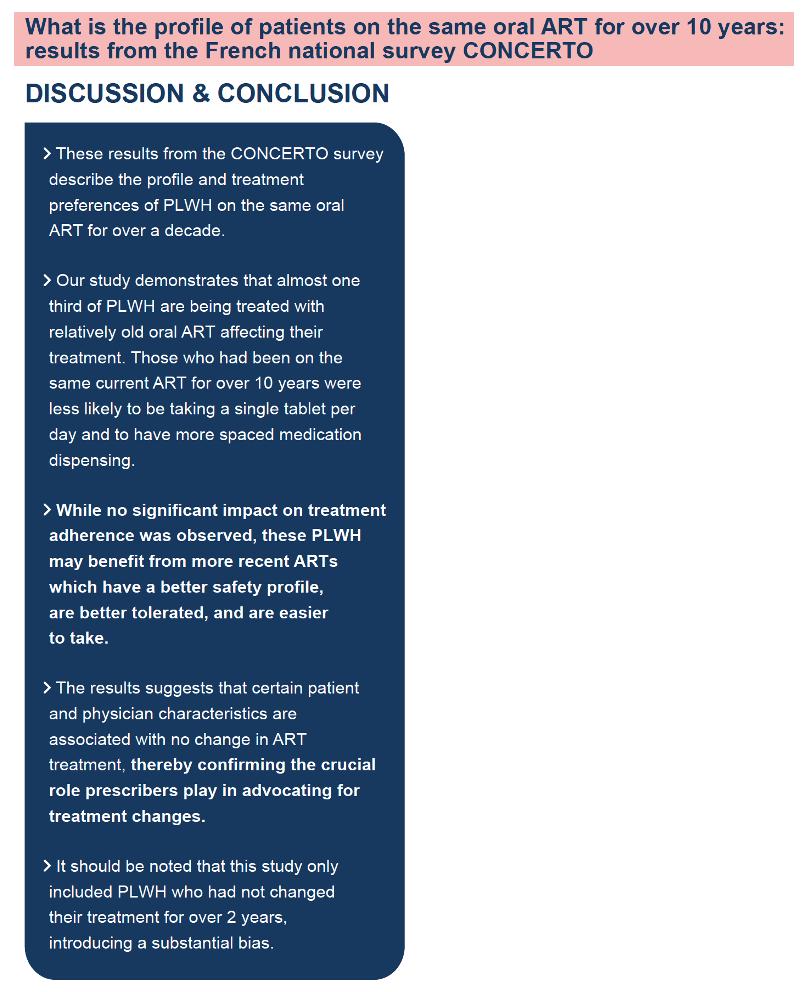
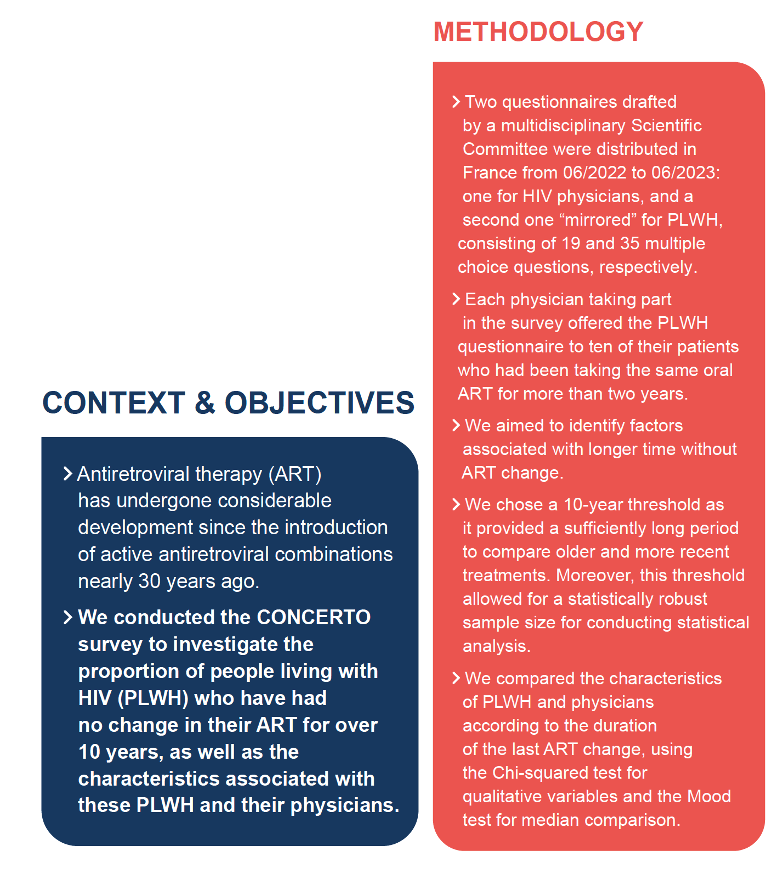
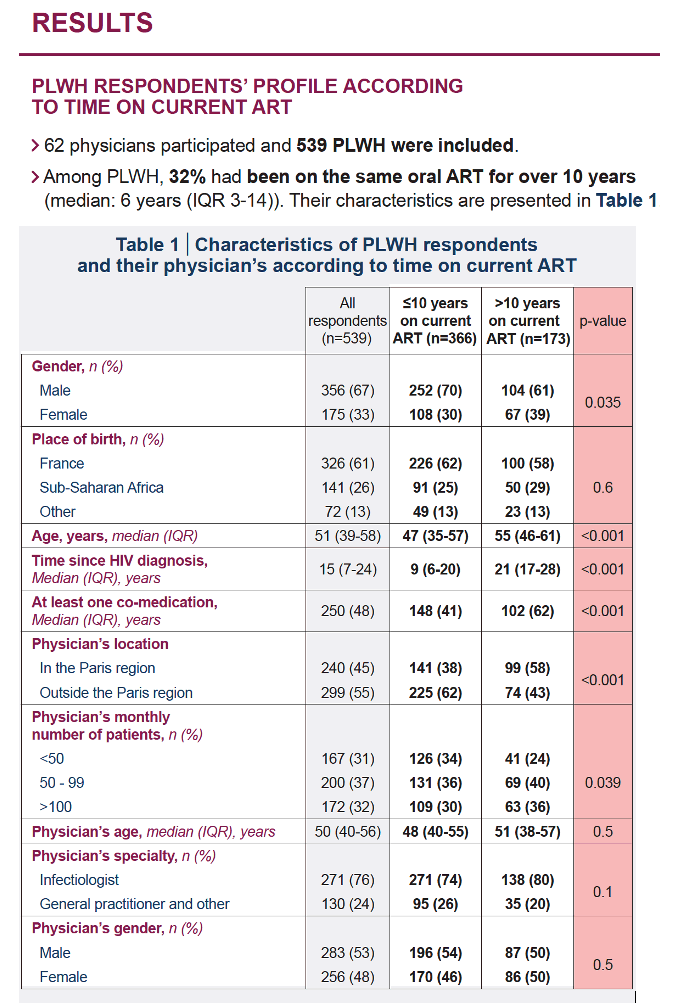
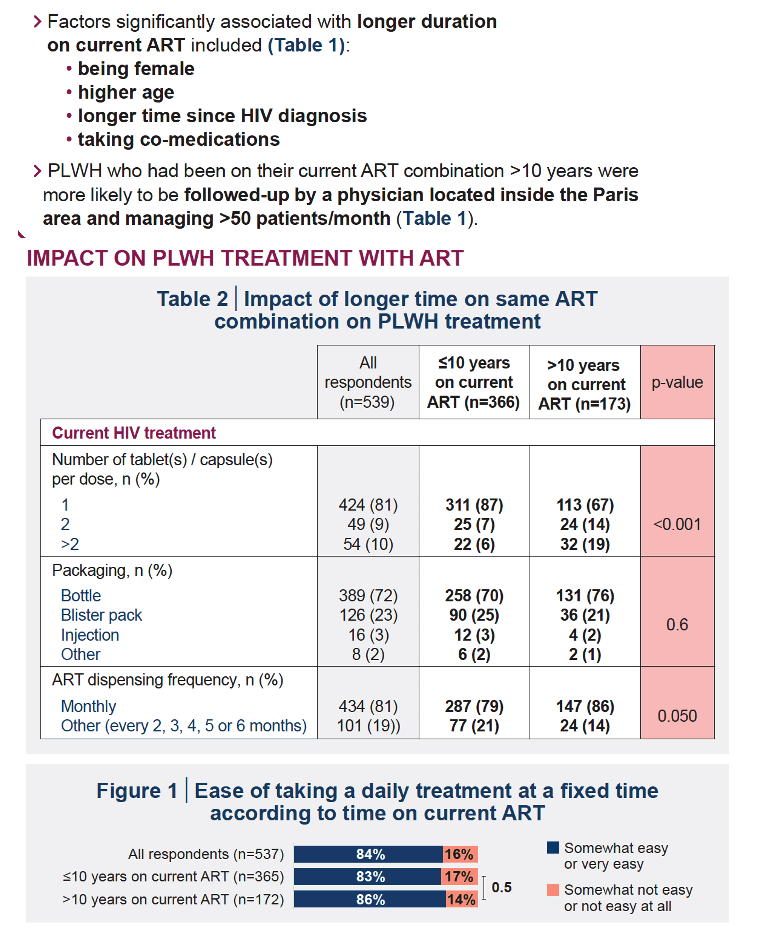
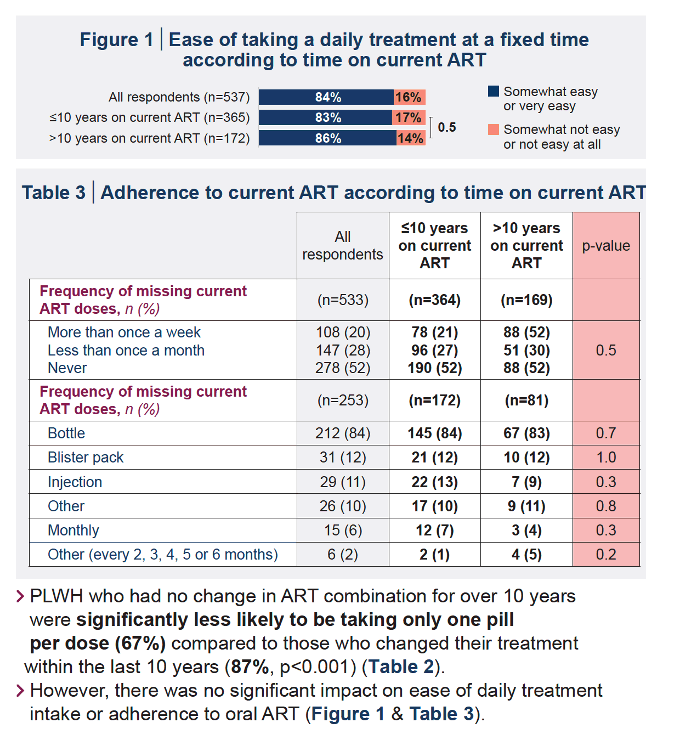
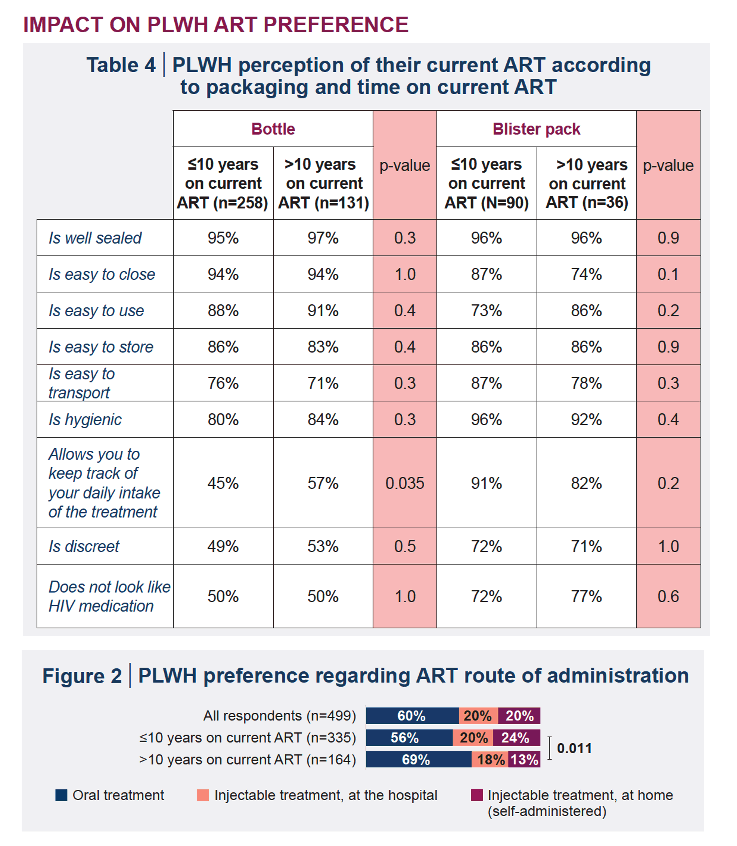
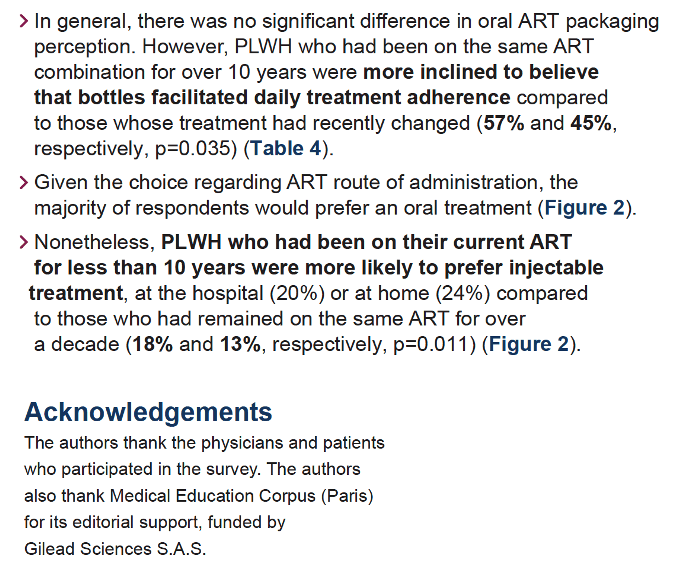
|
| |
|
 |
 |
|
|